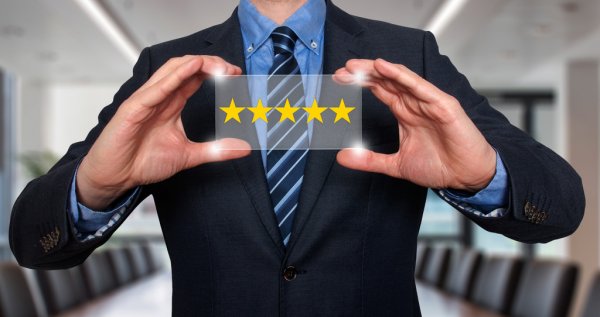- 63 – 66 Hatton Garden London, EC1N UK
Do you need Surveillance in Dubai? We offer a professional, discrete service.
Low Cost Detectives Surveillance Dubai. We have over 300 Branches worldwide. This includes 71 Branches in Asia located in 48 separate Asian Countries.
Whats unique about lowcostdetectives.com?
We provide our clients with a unique, simple, cost effective yet high value and very results driven service.

Get in Touch with our Expert Surveillance Detectives
We Provide Surveillance Services in Dubai for many reasons including:
Infidelity & Cheating Partner Suspicions – Personal Injury or Insurance Fraud Investigations
Employees who take time off work feigning sickness or have other employment whilst claiming to be sick – Monitoring a person’s movements at a property or business
Obtaining an individual’s residential address or locating their workplace – Benefit cheats
The lifestyle of an individual and/or their friends and associates – Theft from a business by placing covert staff in the workplace – State of the art surveillance equipment
Low Cost Detectives Surveillance Dubai. Low Cost Detectives Dubai, UAE Branch started Investigations in UAE in 1992. It is located in the Boulevard Plaza area of Dubai.
We are market leading surveillance specialists
Surveillance Dubai. Our Private Detectives have the most up to date technology in the surveillance equipment at their disposal in order to produce outstanding photographic and audio/video evidence.
This includes:
• Hidden Body Cameras allowing them to film inside shops or other business premises without being noticed
• Modern Audio/Video Cameras
• GPS Vehicle Trackers
• Fully equipped vehicles
Surveillance Dubai Interesting Links and Articles:
Surveillance Dubai – Jumeirah Beach –
Dubai Creek – The Empty Quarter – Al Qudra Lake – Al Hajar Mountains – Deira – Al Bastakiya – Downtown Dubai – Dubai Marina – Hatta – Jumeirah – Al Bastakiya – Al Karama – Bur Dubai – Business Bay – Downtown Dubai – Dubai Marina
What Is Surveillance - From Wikipedia, the free encyclopedia
Surveillance in Dubai. Surveillance is the monitoring of behavior, activities, or information for the purpose of information gathering, influencing, managing or directing. This can include observation from a distance by means of electronic equipment, such as closed-circuit television (CCTV), or interception of electronically transmitted information, such as Internet traffic. It can also include simple technical methods, such as human intelligence gathering and postal interception.
Surveillance is used by governments for intelligence gathering, prevention of crime, the protection of a process, person, group or object, or the investigation of crime. It is also used by criminal organizations to plan and commit crimes, and by businesses to gather intelligence on criminals, their competitors, suppliers or customers. Religious organisations charged with detecting heresy and heterodoxy may also carry out surveillance. Auditors carry out a form of surveillance.
Surveillance can be used by governments to unjustifiably violate people’s privacy and is often criticized by civil liberties activists. Liberal democracies may have laws that seek to restrict governmental and private use of surveillance, whereas authoritarian governments seldom have any domestic restrictions. International espionage seems to be common among all types of countries.
Counter Surveillance
Countersurveillance is the practice of avoiding surveillance or making surveillance difficult. Developments in the late twentieth century have caused counter surveillance to dramatically grow in both scope and complexity, such as the Internet, increasing prevalence of electronic security systems, high-altitude (and possibly armed) UAVs, and large corporate and government computer databases.
Inverse surveillance is the practice of the reversal of surveillance on other individuals or groups (e.g., citizens photographing police). Well-known examples include George Holliday’s recording of the Rodney King beating and the organization Copwatch, which attempts to monitor police officers to prevent police brutality. Counter-surveillance can be also used in applications to prevent corporate spying, or to track other criminals by certain criminal entities. It can also be used to deter stalking methods used by various entities and organizations.
What Do Supporters of Surveillance Say?
Supporters of surveillance systems believe that these tools can help protect society from terrorists and criminals. They argue that surveillance can reduce crime by three means: by deterrence, by observation, and by reconstruction. Surveillance can deter by increasing the chance of being caught, and by revealing the modus operandi. This requires a minimal level of invasiveness.
Another method on how surveillance can be used to fight criminal activity is by linking the information stream obtained from them to a recognition system (for instance, a camera system that has its feed run through a facial recognition system). This can for instance auto-recognize fugitives and direct police to their location.
A distinction here has to be made however on the type of surveillance employed. Some people that say support video surveillance in city streets may not support indiscriminate telephone taps and vice versa. Besides the types, the way in how this surveillance is done also matters a lot; i.e. indiscriminate telephone taps are supported by much fewer people than say telephone taps done only to people suspected of engaging in illegal activities.
Surveillance can also be used to give human operatives a tactical advantage through improved situational awareness, or through the use of automated processes, i.e. video analytics. Surveillance can help reconstruct an incident and prove guilt through the availability of footage for forensics experts. Surveillance can also influence subjective security if surveillance resources are visible or if the consequences of surveillance can be felt.
Some of the surveillance systems (such as the camera system that has its feed run through a facial recognition system mentioned above) can also have other uses besides countering criminal activity. For instance, it can help on retrieving runaway children, abducted or missing adults and mentally disabled people. Other supporters simply believe that there is nothing that can be done about the loss of privacy, and that people must become accustomed to having no privacy. As Sun Microsystems CEO Scott McNealy said: “You have zero privacy anyway. Get over it.”
Another common argument is: “If you aren’t doing something wrong then you don’t have anything to fear.” Which follows that if one is engaging in unlawful activities, in which case they do not have a legitimate justification for their privacy. However, if they are following the law the surveillance would not affect them.
F.A.Q
Please find a list below of frequently asked questions and answers
A Private Investigator’s job is to help organisations, members of the public, and solicitors, to solve sensitive or difficult problems by discretely gathering evidence and information. Information is gathered using professional methods, including tracking, surveillance, making enquiries and monitoring. A Private Investigator will uncover the facts. This information is then presented, and advice is offered for you where appropriate.
Surveillance, monitoring and vehicle tracking
Personal background and history checks
Relationship issues
Employee Absenteeism
Tracing missing people
Investigating fraud and theft
Using a private investigator is perfectly legal, providing that you choose a professional and ethical investigator or agency that follow the rule of the law, based on the country they operate in.
Private investigators employ the use of a variety of professional tools, equipment and know-how to obtain the information they require. The way in which information is gathered will depend completely on the nature of the case that is being investigated.
The price you can expect to pay for a private investigator to take on your case will be entirely dependent on the nature and extent of your enquiry. Factors that will play a part in the cost include the number of operatives that will be required to carry out the investigation, mileage undertaken, and the tools, equipment and resources required.
Typical costs for common investigations are:
Surveillance – £45 – £75 per hour
Tracing people – £150 – £350
Background checks – £55 – £95 per hour
GPS tracking – £300 – £800



